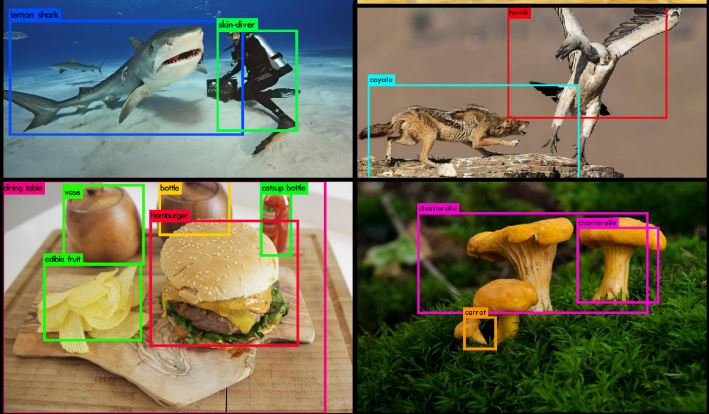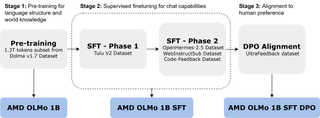I’ve determined to create a brand new prestigious and highly-coveted award: the Zbigatron Paper of the Yr Award.
And I hereby formally bestow the 2024 award to Hicks et al. for his or her educational publication entitled “ChatGPT is Bullshit“ (Hicks, M.T., Humphries, J. & Slater, J. ChatGPT is bullshit. Ethics Inf Technol 26, 38 (2024)). What a paper. A breath of recent air on the earth of hype, lies, and monetary bubbles that encompass Synthetic Intelligence immediately.
The premise of the paper is that this: we should always cease utilizing phrases like “hallucination” for conditions the place LLMs make up data and current them as info as a result of that is an inaccurate description of this phenomenon.
Now, I’ve been an enormous champion of utilizing extra correct phrases to explain actions or attributes of machines which might be deemed to be artificially clever. For instance, in an article I wrote two years in the past (entitled The Want for New Terminology in AI) I said:
Phrases like “intelligence”, “understanding”, “comprehending”, “studying” are loaded and indicate one thing profound within the existence of an entity that’s mentioned to be or do these issues… [T]he drawback is that the aforementioned phrases are being misunderstood and misinterpreted when utilized in AI.
After which we go and create an AI hype bubble consequently. So, in that article, I referred to as for extra exact phrases to be substituted for these, reminiscent of utilizing “Utilized Statistics” instead of “Synthetic Intelligence”. (Are you able to image how the hype round AI would diminish if it was all of the sudden being known as Utilized Statistics? This can be a way more correct time period for it, for my part.)
Certainly, Hicks et al. have gone for a similar method classifying the phenomenon of hallucinations as one thing utterly totally different. I have to quote their summary to convey their message:
We argue that these [hallucinations], and the general exercise of enormous language fashions, is healthier understood as bullshit within the sense explored by Frankfurt (On Bullshit, Princeton, 2005)… We additional argue that describing AI misrepresentations as bullshit is each a extra helpful and extra correct method of predicting and discussing the behaviour of those methods. [emphasis mine]
Sure! Please! Let’s begin utilizing extra correct phrases to explain the phenomenon of AI. I extremely agree that bullshit is a correct, scientifically-based, and complex time period that ought to be utilized in immediately’s day and age.
I have to drop some extra quotes from this paper. It actually does deserve my award:
As a result of these [LLMs] can’t themselves be involved with reality, and since they’re designed to provide textual content that appears truth-apt with none precise concern for reality, it appears applicable to name their outputs bullshit.
After which this:
Presently, false statements by ChatGPT and different giant language fashions are described as “hallucinations”, which give policymakers and the general public the concept that these methods are misrepresenting the world, and describing what they “see”. We argue that that is an inapt metaphor which can misinform the general public, policymakers, and different events. [emphasis mine]
Lastly, any individual calling out the BS (pun meant) for what it’s. Like I mentioned, what a breath of recent air. And the way necessary is that this!? The general public, policymakers, and different events are making essential selections based mostly on false data.
It’s a traditional case of PR discuss, isn’t it?
I lately learn an article (The Present State of AI Markets) that attempted to quantify the place income has occurred to this point within the AI Worth Chain. Everyone knows that corporations are spending a ridiculous amount of cash on AI – so what’s the present ROI on this trying like?
To cite the article:
Amazon, Google, Microsoft, and Meta have spent a mixed $177B on capital expenditures over the past 4 quarters… We haven’t seen wide-scale software income but. AI purposes have generated a really tough estimate of $20B in income.
Because the article admits: it’s early days but and the ROI could come sooner or later. Nonetheless, one can’t ignore the divide between expenditure and ROI.
So, when we have to name a spade a spade, it’s necessary that we accomplish that. This isn’t a joke, nor a recreation. Like I’ve mentioned prior to now: “There’s a ridiculous amount of cash being spent, handed round, and invested and a number of it’s constructed on a false thought of what AI is able to and the place it’s going. Persons are going to get damage. That’s not an excellent factor.”
I’m going to depart the ultimate phrase on this essential subject to the official winner of the 2024 Zbigatron Paper of the Yr Award:
Buyers, policymakers, and members of most people make selections on methods to deal with these machines and methods to react to them based mostly not on a deep technical understanding of how they work, however on the usually metaphorical method wherein their skills and performance are communicated. Calling their errors ‘hallucinations’ isn’t innocent: it lends itself to the confusion that the machines are ultimately misperceiving however are nonetheless making an attempt to convey one thing that they consider or have perceived. This, as we’ve argued, is the incorrect metaphor. The machines are usually not making an attempt to speak one thing they consider or understand. Their inaccuracy isn’t attributable to misperception or hallucination. As we have now identified, they don’t seem to be making an attempt to convey data in any respect. They’re bullshitting.
To be told when new content material like that is posted, subscribe to the mailing listing:
(Word: If this submit is discovered on a web site apart from zbigatron.com, a bot has stolen it – it’s been occurring lots these days)




